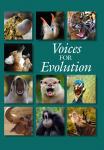
The chorus of support for the teaching of evolution continues, with three statements from the Louisiana State University Museum of Natural Science, the Manchester Museum at the University of Manchester, and the Minnesota Science Museum.
In its statement, the Louisiana State University Museum of Natural Science writes, "The Louisiana State University Museum of Natural Science comprises a community of students, professors, and researchers of natural history. As members of the worldwide scientific community, we use the theory of evolution and other scientific principles to study the natural world. Evolutionary theory has greatly enhanced progress in the fields of medicine, anatomy, archaeology, biology, biochemistry, geology, neuroscience and many other disciplines. Without an understanding of evolutionary biology, our perception of the natural world would be greatly diminished."
The Manchester Museum at the University of Manchester (in Britain) states (PDF), "The theory of evolution states that the diversity of life has developed over time," adding, "The theory of evolution is central to the field of biology." With respect to the age of the earth and the evolution of life, the museum's statement explains, "These facts are accepted by the overwhelming majority of scientists and are established beyond reasonable doubt as the simplest explanations of the physical and biological evidence."
The Science Museum of Minnesota proclaims, "The theory of evolution is grounded in well-substantiated, testable hypotheses that have stood the tests of time and peer review. The word 'theory' as it is used here, does not mean a mere speculation or a best guess. Rather, in referring to a scientific theory, it is a set of firmly established scientific principles supported by research. Evolutionary theory serves as a foundation for natural history including the museum's core competencies in paleontology, anthropology, and biology. To compromise the explanations of evolution or to permit unscientific alternative explanations into our galleries or our programs would misrepresent the principles of science."
All three of these statements are now reproduced, by permission, on NCSE's website, and will also be contained in the fourth edition of NCSE's Voices for Evolution.
